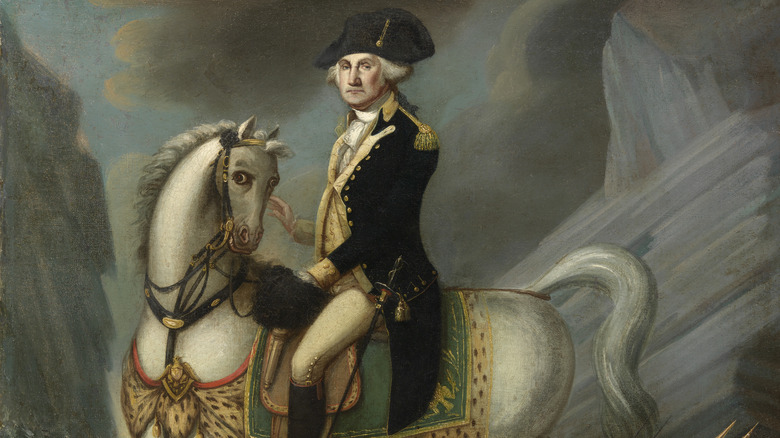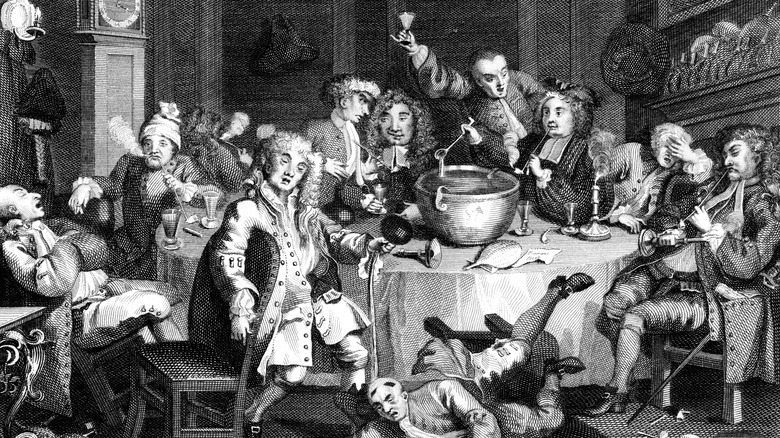Here's What Our Founding Fathers Drank At George Washington's Farewell Party
You can understand the astounding bar bill at a famous 1787 party in Philadelphia for George Washington — around $15,000 in today's money — when you consider that decade-plus of toil and tribulation that preceded it in the Revolution. Little more than 10 years prior, the United States had not even existed and now after a string of improbable victories by Washington and his Revolutionary brothers, it had not only defeated the world's most powerful empire, but also created a constitution in Philadelphia for a new kind of government. Now that the quills were dry, It was time to wet the lips and party like it's 1799.
In fact, looking at the bar tab of that night at City Tavern — the it bar for founding fathers — it may have been one of history's greatest bro-downs. Rediscovered by a professor at Pepperdine University, the bill lists an impressive volume of booze for the evening. The 55 attendees drank: 54 bottles of madeira, 60 bottles of claret, eight bottles of whiskey, 22 of porter, eight of hard cider, 12 of beer and seven bowls of alcoholic punch. The 16 servants and musicians got their own stash, too, amounting to 16 more bottles of claret, five of madeira, and seven bowls of punch. One can only assume each experienced a Valley Forge behind the eyes the next morning.
Boozing it up 18th-century style
As shocking as the sheer volume of alcohol may seem to today's eyes, it may not have been so for 18th century ones. That's because Americans drank significantly more back then. Americans were consuming about 5.8 gallons of absolute alcohol each year per drinking-age person. That doesn't mean 5.8 gallons of the Swedish vodka brand, but 99% pure alcohol. Today, Americans' drinking habits are not so prodigious and average just 2.3 gallons per year. Even God was on the side of alcohol, according to the famed puritan preacher Increase Mather, who declared alcohol "a good creature of God."
Alcohol was often safer to drink than water at the time, perhaps another reason Washington was trying to produce wine. Sure, keg-standing barrels of claret might lead to constitutional hangovers the next day, but that was better than cholera, E. coli, typhoid and the many other waterborne pathogens that regularly decimated American communities of the era. At least Washington's favorite breakfast food could alleviate the former. That offered at least one more good reason for Washington to include "one quart of good spruce or malt beer" in his army's daily rations and for Congress to up that to "half a gill of rum, brandy or whiskey" per day in 1790. Clearly, the constitution that Washington and friends had raised their chugs to just three years before was doing its job.

